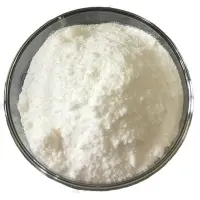-
Categories
-
Pharmaceutical Intermediates
-
Active Pharmaceutical Ingredients
-
Food Additives
- Industrial Coatings
- Agrochemicals
- Dyes and Pigments
- Surfactant
- Flavors and Fragrances
- Chemical Reagents
- Catalyst and Auxiliary
- Natural Products
- Inorganic Chemistry
-
Organic Chemistry
-
Biochemical Engineering
- Analytical Chemistry
-
Cosmetic Ingredient
- Water Treatment Chemical
-
Pharmaceutical Intermediates
Promotion
ECHEMI Mall
Wholesale
Weekly Price
Exhibition
News
-
Trade Service
Melatonin is a hormone that is naturally produced by the body and regulates sleep-wake cycles.
It has been widely used as a dietary supplement for various sleep disorders and is considered to be generally safe when used as directed.
However, the chemical industry has come under scrutiny in recent years due to concerns over the safety of the ingredients used in their products.
One of the main concerns with the safety of melatonin in the chemical industry is the potential for contamination with other substances.
Melatonin is often sourced from animal or plant-based sources, and these sources may contain impurities or other substances that can affect the safety of the final product.
For example, melatonin extracted from the pineal gland of cows has been found to contain a variety of contaminants, including bovine serum albumin, glutathione, and other substances that can affect the safety and efficacy of the product.
Another concern is the potential for the use of synthetic melatonin in the chemical industry.
Synthetic melatonin is made in a laboratory and may contain impurities or other substances that can affect the safety of the final product.
In addition, there is limited information available on the long-term effects of using synthetic melatonin, which has raised concerns among some health experts.
Despite these concerns, the chemical industry continues to use melatonin in a variety of products, including dietary supplements, drugs, and other products.
In order to ensure the safety of these products, it is important for the industry to implement rigorous testing and quality control measures.
This includes testing for impurities and contaminants, as well as ensuring that the final product meets all relevant safety and efficacy standards.
In addition, it is important for consumers to be aware of the potential risks associated with using melatonin and other dietary supplements.
Consumers should always consult with a healthcare professional before taking any dietary supplement, and should be aware of the potential side effects and interactions with other medications.
In conclusion, melatonin is a hormone that is naturally produced by the body and is widely used as a dietary supplement for various sleep disorders.
While the chemical industry has come under scrutiny in recent years due to concerns over the safety of melatonin and other dietary supplements, the overall consensus is that melatonin is generally safe when used as directed.
However, it is important for the chemical industry to implement rigorous testing and quality control measures to ensure the safety of their products, and for consumers to be aware of the potential risks associated with using melatonin and other dietary supplements.







